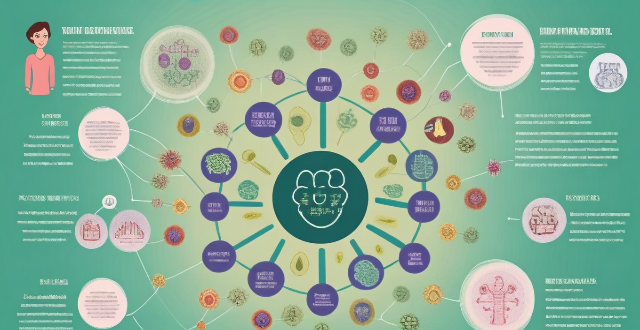Tracing the origins of a virus involves various ethical considerations to ensure protection of individuals, communities, and the environment, while promoting scientific progress. Key considerations include respect for cultural and social sensitivities, protection of privacy and confidentiality, and environmental sustainability. Researchers must avoid stigmatization or discrimination against any group or community, engage with local communities, obtain informed consent, implement robust data security measures, minimize environmental impact, and collaborate with environmental stakeholders. By doing so, researchers can conduct responsible and ethical investigations that contribute to our understanding of viral diseases and inform public health policies.

Ethical Considerations in Tracing Virus Origins
Introduction
Tracing the origins of a virus is a complex and sensitive task that involves various ethical considerations. These considerations are crucial to ensure the protection of individuals, communities, and the environment while promoting scientific progress. In this article, we will discuss some of the key ethical considerations that should be taken into account when tracing virus origins.
Respect for Cultural and Social Sensitivities
1. Avoiding Stigmatization and Discrimination
When tracing virus origins, it is essential to avoid stigmatizing or discriminating against any particular group or community. This includes avoiding language or actions that may be perceived as blaming or shaming certain populations. Instead, efforts should focus on understanding the broader context and factors contributing to the emergence and spread of the virus.
2. Engaging with Local Communities
Engaging with local communities is crucial to gain their trust and cooperation during the investigation process. This involves listening to their concerns, respecting their cultural practices, and involving them in decision-making processes related to the research. By doing so, researchers can build rapport with these communities and increase their willingness to participate in the study.
Protection of Privacy and Confidentiality
1. Informed Consent
Researchers must obtain informed consent from individuals involved in the study, explaining the purpose, risks, and benefits of the research. They should also provide clear information about how data will be collected, stored, and used, ensuring that participants understand their rights and can make informed decisions about their participation.
2. Data Security and Anonymity
To protect the privacy and confidentiality of participants, researchers must implement robust data security measures. This includes using secure storage systems, limiting access to sensitive information, and anonymizing data whenever possible. Additionally, researchers should consider the potential impact of publishing findings on the privacy and well-being of individuals and communities involved in the study.
Environmental Sustainability
1. Minimizing Environmental Impact
Researchers must consider the environmental impact of their activities when tracing virus origins. This includes minimizing disruption to natural habitats, avoiding harmful chemicals or substances, and ensuring proper waste management practices. By doing so, researchers can reduce their ecological footprint and contribute to sustainable development goals.
2. Collaboration with Environmental Stakeholders
Collaborating with environmental stakeholders, such as conservation organizations and local authorities, can help researchers identify potential risks and develop strategies to mitigate negative impacts on the environment. This collaboration can also facilitate the sharing of knowledge and resources, leading to more effective and efficient research practices.
Conclusion
Tracing virus origins requires careful consideration of various ethical issues to ensure the protection of individuals, communities, and the environment. By respecting cultural and social sensitivities, protecting privacy and confidentiality, and promoting environmental sustainability, researchers can conduct responsible and ethical investigations that contribute to our understanding of viral diseases and inform public health policies.